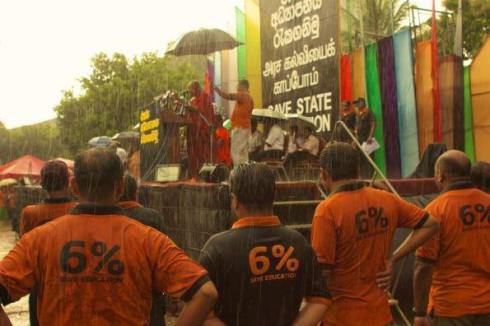“Our Friends with Benefits: On the Union Question” — is a position paper on unions written by Jocelyn Cohn and James Frey of Unity and Struggle. Advance the Struggle is pleased to repost this document. It argues the state has subsumed the role of unions, making revolutionary interventions for their transformation a dead-end. This position calls into question the revolutionary potential of the existing structure of unions; not the question of union leadership as what the Internationalist Group argued. Consider the following quotes from their piece, “It is the very limits of the trade unions to begin with, their structural incapacity to perform any function other than capitalist protectionism of certain workers, which has led to their destruction in the face of a rapidly changing social relations of production.” This means that revolutionaries have a different set of work ahead, one of “seizing on contradictions and expanding them to a level where control of political power can be grasped by the working class.” Continuing with the role of revolutionaries, “The call to expand unions is similarly a faulty argument. Revolutionaries struggling for the benefits of unionized workers, and to preserve industries and workplaces that are unionized, will find themselves necessarily in competition with the rest of the class.”
Many argue this is the new reality of our situation after the 70s and 80s capitalist restructuring. This document goes a bit further stating that, “Throughout their history, unions have existed as companies in and of themselves, with investment interests, employees, and a necessity to produce value through the exploitation of their own workers.” They conclude the need for political work to be completely outside the union form, including not engaging in the defense of unions against capitalist attacks, “There are many who argue that the best way to organize in a unionized shop is to defend the union, and work to change its structure, or that working independently of the union and within the union are not contradictory. But given our above findings, it is clear that any threat to the hierarchical, alienating, and bureaucratic structure of unions is a threat to unions as a whole, whether it is from the ‘right’ or the ‘left’.”
This thought provoking argument is not entirely new and we can link such a framework with the KAPD of Germany in the 1920s, who split from the Comintern over several questions including the union one. What is fresh about such an argument is the focus on class composition, and the development of the state structuring of unions. On the one hand, we cannot dismiss this argument and must engage its central points. On the other, we must test such a framework in real world politics. Taking this framework to the Longshore, Washington ILWU struggle, the Wisconsin upheaval, or the Chicago teachers’ strike, how do revolutionaries in such situations seize — “on contradictions and expand them to a level where control of political power can be grasped by the working class”? Answering this question contributes to resolving this debate. With that said, we would like to introduce this essay as one of the great contributions to the union discussion.
Introduction
As communist workplace organizers serious about praxis, the authors find ourselves debating the strategic importance and political composition of trade unions in the United States. We find what could be called “the union question” to be in fact a number of questions surrounding the composition of capital in general, capital in its in its present incarnation, as well as the composition of trade unions and their relationship to capital and the state. Most immediate to our investigation is the question of how this arrangement can be interpreted by revolutionaries, in the workplace and outside of it. After engaging these questions it is our finding that working explicitly within the existing trade union structure to defend, change, or strengthen them is not a compliment to working toward consolidating class-wide organizations capable of effective revolutionary struggle, but rather that these two objectives stand in irreducible antagonism.

I. The Historical Context
The use of rebellion, for the purpose of developing capital with ‘renewed energy and vitality’ is not new and not confined to women. For capitalism to co-opt every aspect of struggle, to renew itself with our energy and our vitality, and with the active help of a minority of the exploited, is central to its nature.
Selma James, “Women, the Unions, and Work” 1972
We understand that this debate is re-emerging from the relative torpor it has enjoyed since the 1970s due to the ongoing transformation of the processes of production and reproduction in the United States. This shift is alternatively referred to as “neoliberalism” and “austerity”, but these terms are emblematic of a deep-seated shift in the relations of production, the novelty of which is done no justice by comfortable buzzwords which claim its content as already definable.
Historically speaking, we find the roots of the transformation which comprises our present epoch in the 1950s and 1960s. In this period the state took on the role of regulating the value of labor power through public welfare and unemployment programs which kept unemployed people from uniting with the rest of the working class and allowed for a flexible workforce that could work seasonally and in many jobs, as well as through certain wage and benefit protections provided through Collective Bargaining Agreements and shifts in labor law, which simultaneously coerced workers into de-skilled, repetitive, and unrewarding factory jobs, and kept a caste of workers slightly above another while styming at least some labor unrest. Most importantly, it kept worker activity contained by union bosses at least as much as by company bosses.
Continue reading →







